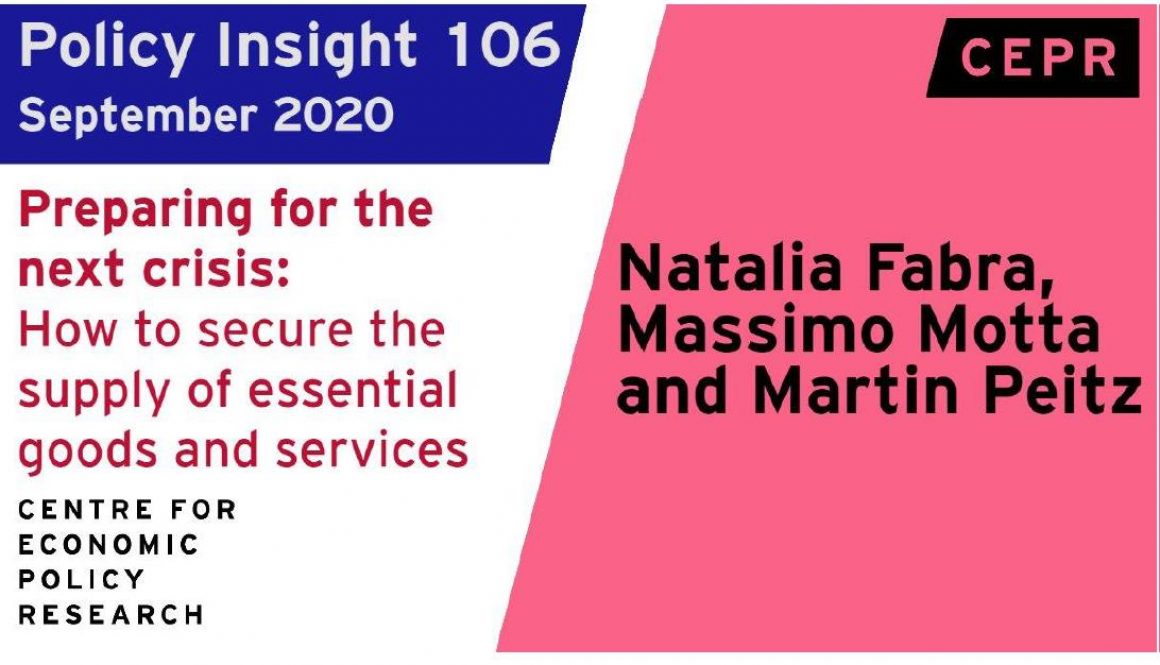IT PAYS TO BE PREPARED. New Discussion Paper on how to prepare for the next crisis
Why were European states so unprepared for the Covid-19 pandemic, lacking both a coherent strategy and adequate preventative measures? And what can be done to ensure the necessary cooperation, preparation, and resilience for future adverse shocks? States, by their very nature, have a ‘universalistic duty’ to prepare preventative measures for all kinds of crises. These include a robust primary health care system, a strong logistics network, emergency decision-making bodies that combine legitimacy (elected politicians) with expertise (expert advice), and institutions that promote cooperation among countries or regions.
And yet, the Covid-19 crisis has highlighted the potential for severe market failures in the provision of essential goods and services during pandemics and other negative shocks with major impact. Across Europe, there has been acute shortages of medical supplies essential for dealing with the pandemic. Collapsing supply chains and non-existent stockpiling, an over-reliance on production from China, and inadequate government policies have all contributed to this systematic failure. While catastrophic events are difficult to avoid, society must strive to be better prepared for the next one.
Natalia Fabra, together with Massimo Motta, ICREA-Universitat Pompeu Fabra and Barcelona Graduate School of Economics and CEPR Research Fellow, and Martin Peitz, University of Mannheim and MaCCI, have just released a new CEPR Policy Insight, in which they analyze the private and state incentives to take adequate measures before and during a crisis triggered by an adverse shock. They argue that private initiatives are often insufficient to be prepared for rare events with a large negative effect. Instead, governments and international institutions should implement mechanisms which ensure that prevention, detection and mitigation measures are taken.
The findings in this Policy Insight demonstrate that the necessary preparation for catastrophic events should consist of an articulated strategy, which goes from having an adequate research infrastructure and human capital to investing in prevention, and from early detection (in order to mitigate their impact) to building the ability to react should such events materialise. It may be that neither market institutions (e.g. insurance markets) nor an individual country’s initiatives are sufficient to achieve this alone. A strategy based on private (even if mandatory) insurance is likely to be insufficient and difficult to implement. Instead, a resilience strategy should rely on public authorities securing the provision of essential goods in sufficient quantity and quality. This requires putting in place competitive mechanisms to accumulate essential goods, establishing rationing protocols, and facilitating rapid production when the crisis hits.
The report also stresses the importance of fostering ‘Social capital’ to face disasters, which includes building trust in public institutions, a well-functioning administration, and society’s willingness to listen to science and follow public recommendations. In particular, the economics of electricity capacity markets provides important lessons for the provision of essential goods in such events – as a general principle, it is likely that a centralised and targeted mechanism, such as a system of strategic reserves to be procured through auctions, would perform well in most cases.
“These lessons are relevant to coping with the ongoing Covid-19 threat as well as with any future crisis of as yet unknown nature”
The Column summarizing their work can be read here https://voxeu.org/article/building-strategy-resilience
The Policy Insight is available here https://cepr.org/active/publications/policy_insights/viewpi.php?pino=106

